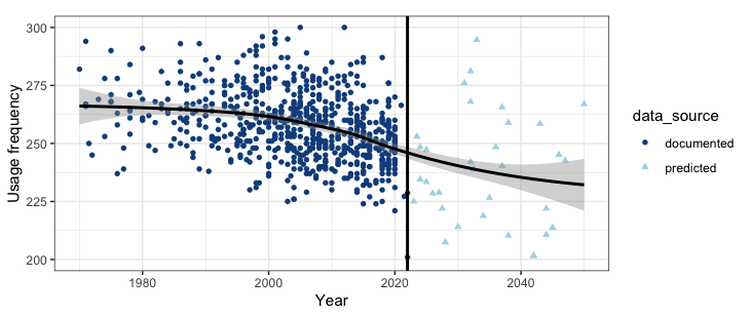The papers reunited in this collection explore the possibility of extrapolating change within synchronic data from Contemporary Portuguese, investigating the potential of a predictive historical linguistics. They provide indications as to the future developmentof the grammar(s) of the world language Portuguese in the 21st century. The results from these papers indicate that in order to achieve this aim, exploitation of a wide range of methods developed in sociolinguistics (apparent time), psycholinguistics (experimental approaches) and comparative typology (extrapolation of change from dialectal comparison) is necessary. The papers brought together in this special issue cover ongoing and possible future changes in a wide range of domains: the functional lexicon, phonetics and phonology, the pronominal system, impersonal and existential constructions, temporal semantics, and the syntax and semantics of subordinate clauses. This includes the documentation of phenomena that have not yet received much attention (or any attention at all), such as the intensifier bué in some African varieties and existential estar com-constructions in Brazilian Portuguese, among others. The results show a diversity of possible outcomes, such as scenarios that lead to leveling of contact-induced variation, divergence between varieties and putative grammaticalization cycles.
Guest editors:
Malte Rosemeyer, Freie Universität Berlin, malte.rosemeyer@fu-berlin.de
AlbertWall, University of Vienna, albert.wall@univie.ac.at
Research Paper
Patterns of progression of sound changes in a variety of Portuguese in contact with Italian immigration languages in Southern Brazil
Elisa Battisti and Bruna Silva dos Santos
2024-02-08 Volume 23 • Issue 1 • 2024
Also a part of:
Collection: Emergent and future change in Contemporary Portuguese grammar
Onomasiological cyclicity in the expression of concessive relations
Sanderléia Roberta Longhin
2022-10-27 Volume 21 • Issue 1 • 2022
Also a part of:
Collection: Emergent and future change in Contemporary Portuguese grammar
Evaluating the form of third-person anaphoric direct objects in Portuguese: A cross-dialectal study
Kendra V Dickinson, Luana Lamberti and Scott Schwenter
2025-04-15 Volume 24 • Issue 1 • 2025
Also a part of:
Collection: Emergent and future change in Contemporary Portuguese grammar
Collections
-
Emergent and future change in Contemporary Portuguese grammar
Empirical Approaches to Portuguese Linguistics - New insights from studies in various areas of grammar
Possession and location in African varieties of Portuguese
Laboratory Approaches to Portuguese Phonology
Early Western and Portuguese descriptors of the Indian languages from the 16th century onwards
